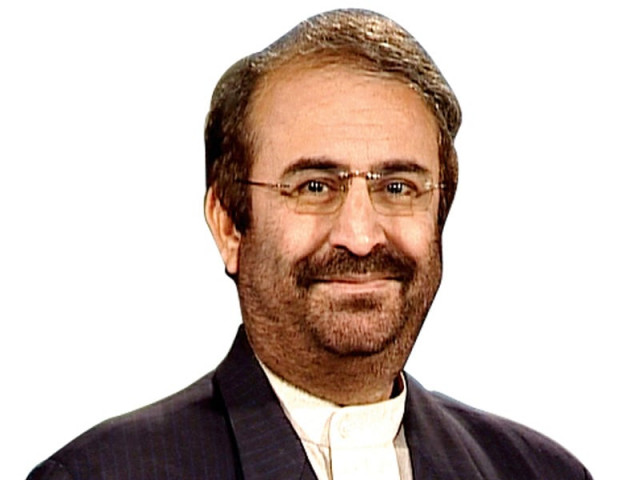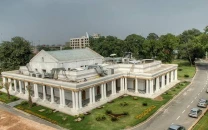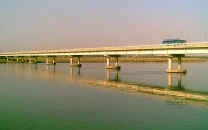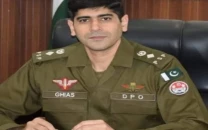Peace deal still on hold
Hizb-e-Islami, govt yet to sign papers as issue gains international importance

Hizb-e-Islami, govt yet to sign papers as issue gains international importance
The long-awaited deal that enjoys widespread support across the war-ravaged country once again faces a deadlock. The Hizb-e-Islami Chief Gulbuddin Hekmatyar, in his Eid message, blamed the government’s internal problem for the suspension of the long-awaited agreement.
The HIA officials have confirmed to The Express Tribune that Amin Karim, the top negotiator, has returned to Germany, where he is based, which indicates a further delay in the signing of the accord. The deal is seen as particularly significant for the reconciliation in the war-shattered country.
The ball is now in the government’s court and the war-weary Afghans would expect to hear the good news as soon as possible. With reference to the peace negotiations with the HIA, President Ashraf Ghani, said after Eid prayers that he would not accept any hurdles in finalising the agreement. Ghani’s remarks reflect the lack of consensus between his camp and the Chief Executive Dr Abdullah Abdullah.
The traditional rivalry between Abdullah’s Jamaat-e-Islami and HIA could be seen as one of the hurdles in the possible deal. However, the responsibility mainly rests with the president to save the deal as both sides have held talks over the past two years. If the government leaders are sincere with their own people, they would have to set aside their political differences for the sake of peace and stability in the country.
Ghani and Abdullah – who are currently involved in political wrangling – had pledged during the election campaign to push for reconciliation. However, both leaders have yet to honour their commitment at a time when political analysts are raising questions about the legal status of the government.
The National Unity Govern-ment (NUG) in Afghanistan, which completes two years this month, had to convene a ‘Loya Jirga’ or grand assembly within two years of its formation, to amend the Constitution and create the office of the Prime Minister for Dr Abdullah. There are no chances for the already delayed parliamentary elections to be held next month.
In January, Afghanistan’s Independent Election Commission set October 15 as the date for the National Assembly’s polls. The much-anticipated electoral reforms, which are seen as significant to avoid fraud, have not yet been finalised over political wrangling between the president and the chief executive.
Former President Hamid Karzai is also among the leaders who are advising the NUG to convene the Loya Jirga.
“The Loya Jirga is an expression of authority of the Afghan people,” Karzai told Reuters in an interview this week. “Things must return to the ownership of the Afghan people. It is an institution for a time of crisis and we are in crisis.”
The peace deal with HIA is important for Afghanistan in the wake of the Taliban’s unwillingness to sit face-to-face.
The Ghani-Abdullah political rivalry is no longer confined to Afghanistan. The simmering tension was echoed at the United Nations Security Council session on September 14 when the situation in Afghanistan was under consideration.
Foreign Minister of New Zealand Murray McCully critically analysed the NUG. He said, “[The NUG] offered an opportunity for the country’s leaders to put aside their differences and create a government free from self-interest and corruption. But what we see today is a president and a chief executive whose relationship is dysfunctional.”
The Security Council showed concerns about the situation in Afghanistan and reaffirmed its support to an “Afghan-led and Afghan-owned peace and reconciliation process with a view to achieving lasting peace and stability in Afghanistan.”
Now, when the whole world is calling for reconciliation process, the NUG leaders should give priority to the reconciliation with the armed groups. They should not miss the opportunity to strike the peace deal with the HIA.
Published in The Express Tribune, September 17th, 2016.



















COMMENTS
Comments are moderated and generally will be posted if they are on-topic and not abusive.
For more information, please see our Comments FAQ